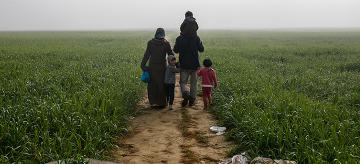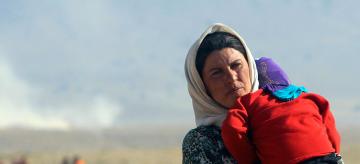Search 13 results
- Remove filter: College
- Remove filter: Migration
Filter by
Events
Series

Hurricane in the Caribbean
How should the United States assist small island nations facing disasters? Explore this simulation.

Migration Today
Understand where migrants come from, where they go, and why migration is increasing through maps, charts, and data.

What Is Migration?
Why do people migrate? Understand why migration means different things for individuals, countries, and economies in a globalized world.

For Migrants, Labels Matter
What is the difference between immigrants, refugees, and asylum seekers? Explore how contested definitions of migrants have a profound effect on the rights and protections of people leaving their homes.

History of U.S. Immigration Policy
Explore how the United States has responded to migrants throughout history—from the Chinese Exclusion Act to DACA—and how immigration policy influences the society, economy, and politics of a country.

The Lasting Effects of Emigration
When migrants seek work abroad, what does their home country gain and lose? Explore one example of a country shaped by emigration, the Philippines.

Internally Displaced Persons: Migrants Who Do Not Cross a National Border
Who are IDPs and how are they different from refugees? Understand what happens to people who are forced from their homes but remain inside their own country through country case studies.

Cuban Immigration in 1980
How should the United States respond to the massive influx of Cuban migrants? Explore this historical simulation set in 1980.
Hurricane in the Caribbean Mini Simulation Activity
Length
Two class periods
Learning Objectives
Students will synthesize information relating to climate change, extreme weather, and U.S. foreign policy and work both independently and collaboratively to design an effective policy response.

Asylum Seekers at the U.S. Southern Border in 2019 (NSC)
Set in 2019. Violence, instability, and poverty in the northern triangle have increased asylum seekers in the United States.